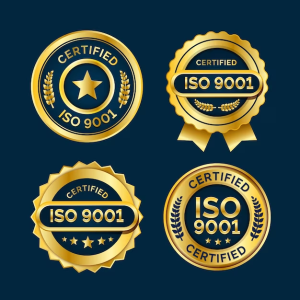
For your company, keeping your ISO 9001 certification is essential. On the other hand, without the appropriate best practices, it can not be easy to do so. Establishing a strong quality management system that is completely integrated into every aspect of your business is crucial.
Maintaining ISO 9001 Certification Is Essential.
You must keep your ISO 9001 certification current for a number of reasons. First off, obtaining ISO 9001 certification will improve your business’s standing in the industry and be recognised globally. Additionally, by detecting and fixing possible process issues, adhering to ISO 9001 quality standards can assist in increasing operational effectiveness and lower costs. Sustaining certification also guarantees that your business will always live up to the expectations of your clients and deliver consistently excellent goods and services.
Essential Components For Preserving ISO 9001 Certification
In order to keep your ISO 9001 certification, you must set up a strong quality management system that is interwoven into every aspect of your business.
Record-keeping and Document Control
Document control and record keeping are essential for preserving ISO 9001 certification. This entails putting in place a system to guarantee that all pertinent papers are current, available, and within the reach of the appropriate staff. Maintaining accurate records of all quality-related activities, including management reviews and corrective and preventive actions, is also crucial. Ensuring traceability of operations, making internal audits easier, identifying areas for improvement, and fixing potential deviations are two benefits of having proper control over papers and data.
Management Reviews And Internal Audits
An efficient technique to assess the performance of your quality management system and find any non-conformities or opportunities for improvement is to conduct internal audits on a regular basis. Establishment processes and procedures will be examined, ISO 9001 compliance will be confirmed, and possible areas for improvement will be found during the internal audit. Internal audits must be carried out by qualified, unbiased individuals who are well-versed in ISO 9001 regulations.
The company’s top management should be in charge of the management reviews, which should include an evaluation of the quality management system as a whole, an analysis of the findings of internal audits, and recommendations for system improvement.
Management reviews provide an opportunity to assess how well the business is performing in relation to setting quality targets and making sure that all necessary steps are being taken to keep the ISO 9001 certification.
Preventative And Remedial Measures
To retain ISO 9001 certification, remedial and preventive activities must be put into place. Corrective action must be taken to address nonconformities or deviations found during internal audits or management reviews in order to stop the issues from happening again. To foresee future problems and stop them from happening in the first place, preventative measures should also be put into place in addition to corrective ones. Process optimisation, employee training, and routine evaluation of existing protocols are a few examples of these measures.
Staff Training And Continuous Enhancement
Sustaining ISO 9001 certification requires constant development. It entails always seeking out methods to enhance the procedures, goods, and services offered by your business. It is imperative to foster the participation and dedication of every employee in this ongoing process of enhancement. This can be accomplished by giving staff members the proper training, promoting candid communication and idea sharing, and praising and rewarding individual accomplishments. Your business will be in a better position to uphold set quality standards and keep its ISO 9001 certification if you encourage a culture of continual development.
In order to maintain your ISO 9001 certification, you must set up a strong quality management system that is interwoven into every aspect of your business. This entails determining and recording important processes, creating precise policies and guidelines, and educating your employees to fulfil the requirements. Your business will be better equipped to handle external audits and make sure that all ISO 9001 requirements are fulfilled by putting in place a strong quality management system.
Featured Image Souce: https://img.freepik.com/free-vector/iso-certification-badge-collection_52683-47556.jpg?size=626&ext=jpg&ga=GA1.1.1778210618.1698672001&semt=ais



